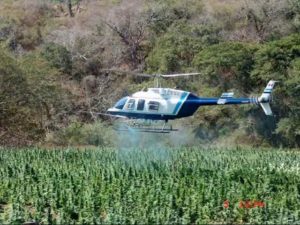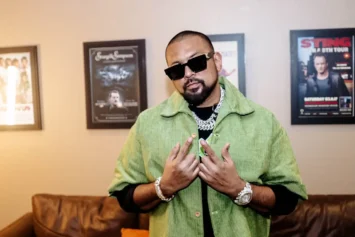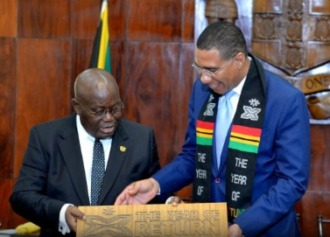
These were among a number of concerns and questions raised at yesterday’s preparatory meeting for the Ganja Future Growers and Producers Association (GFGPA) at the Petroleum Corporation of Jamaica auditorium on Trafalgar Road in Kingston.
“Please, Mr. Government, ask you police and the army to stop digging down the world number one brand ganja,” Ras Arthur Newland shouted out emphatically.
“We believe the persecution and the lock-up for ganja must stop immediately,” he declared during the well-attended meeting that heralds the formal launch of the association set for April 5 at the Jamaica Conference Centre in downtown Kingston.
Another Rastafarian, Brother Trevor, who bemoaned the arrest of his friend, Ras Puddler of Westmoreland, who was arrested after he publicly declared in the Jamaica Observer that he planted ganja, was also of the opinion that individuals should not be persecuted for the weed while government moves toward decriminalization.
“How we can go forward knowing that the Jamaican government is still funding and aiding the destruction of ganja fields, locking up people and burning ganja?” he asked. “How we can go forward with decriminalization, much more legalization, when we still accepting all these aids?”
But Paul Burke, program director for the association, while agreeing with the move for the enforcers not to persecute individuals for ganja, said he was not in support of the call for them to leave the ganja fields.
He explained that the association at its official launch will be advocating for an end to the prosecution of individuals, who are in possession of non-compressed ganja, in the form of a declaration.
“We want the police not to trouble people with non-compressed ganja,” he said. “But we have to decide the battles that we fight.”
“We don’t have to take that position to tell the State to leave the ganja fields,” he added. “We are very clear, this is a Future Growers and Producers Association, and we do not pretend or think that we can represent all of the views of everyone. We are fighting battles that we think we can win.”
Other pressing concerns were also raised at the meeting about the date and timeline of the decriminalization of ganja, the copyright and trademark of ganja, whether or not the Rastafarian community would benefit from the billions of dollars expected to be made from ganja when it is legalized, the amount of ganja that Rastafarians would be allowed to transport or use for sacramental purposes, as well as a call for adequate research to be done to guide the country as it moved toward utilizing ganja medicinally.
In the meantime, participants at the meetings accepted in principle the proposed objectives of the association. These are to represent the best interests of the various stakeholders; give primacy of place to the traditional ganja cultivator for a specified period; lobby the Jamaican government for the establishment of a properly regulated cannabis industry in all aspects, cultivation, agro-processing, medicinal and its many and varied by-products and promote control, education and taxation.
The participators and potential members were, however, reminded by Burke that a compulsory condition of involvement in the association was an agreement by members that they would not to take any part, directly or indirectly, in the cultivation of ganja until there was a legal and regulated framework in place.
The GFGPA comes out of a collaborative initiative spearheaded by the Cannabis Commercial and Medicinal Task Force (CCMRT), the National Alliance for the Legalization of Ganja and the Ganja Law Reform Coalition. The CCMRT is chaired by University of the West Indies Pro-Vice Chancellor and Mona Campus Principal Professor Archibald McDonald. Other directors include Paul Chang, Paul Burke, Delano Seiveright and several persons drawn from civil society.
Source: jamaicanobserver.com

